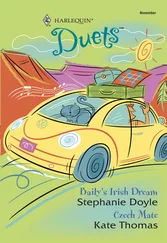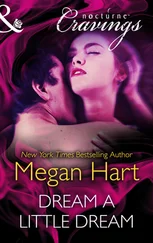“Actually, I know how to remove that fresco,” he said.
In the vastness of the cave, his voice sounded disembodied. She turned to look at him as if she didn’t know what he was saying.
“It’s very simple. You use the resin from a special tree, that’s how the foreigners stole frescoes in the past. A relatively intact one can still be seen in the Brussels Museum.”
“What gave you such a strange idea all of a sudden?” she said, smiling, as if she had just understood what he was saying.
“You like it so much,” he said, turning his eyes away. “I can see you’re crazy about it.”
17
What happened next was certainly a mistake. Xiao Xingxing, for the life of her, couldn’t figure out from where those people had suddenly appeared. Perhaps they had been concealed in the cave all along. Whatever the case may be, they shouted at the top of their lungs, shattering her eardrums. She saw that thin woman, who looked like she was carrying a knife, grab Wuye by the wrist. Wuye was pretty strong, but he suddenly seemed pitifully weak. He struggled, but as fruitlessly as a child. The woman was expressionless, but her eyes were cold though sharp. Xingxing knew it was a mistake. She approached the woman and smiled amiably and gestured to her trying to explain that the young man was a good person and that his talk of applying gum to the fresco was just a joke, but the thin woman was unmoved. The thin woman’s face shone with a thin but healthy beauty in the dark. Only then did she see the group of people behind her, a group of strong men. In the dark she could make out six or seven pairs of fierce green eyes. She could see that Wuye’s face had taken on an ashen pallor.
Wuye would remember that frightening moment the rest of his life. He believed that the thin young woman was the embodiment of Death, because only Death could have such a cold, metallic grip. Her hand was like a steel trap at which he dared not glance for fear lest it be that of a skeleton’s. The black shapes of the men turned out to be nothing. He assumed they were just her bodyguards and that she was the real threat.
He heard Xingxing earnestly entreating the thin young woman, earnestly entreating her without stopping. But it seemed as if no one understood what she was saying. Xingxing kept smiling patiently. When the men pushed him to take him away, she shouted angrily. She pulled the big men’s arms and cursed the thin young woman with venomous words. But they appeared as if they hadn’t heard her, as if they didn’t take her seriously.
Xingxing saw Wuye’s ashen face. She rushed toward him and one of the big men pushed her away. She staggered and almost fell. She saw Wuye’s ashen lips move, but she couldn’t make out what he was saying. Suddenly the thin young woman laughed grimly. Then she pulled a knife from her gray clothes and thrust it rapidly at Xingxing’s heart. She felt as if bluish drops of dew were glittering at dusk. Strangely the thin young woman raised her eyebrows as if pleased with herself, then slowly pulled the knife toward herself. It took a while before she realized that the thin young woman had no intention of stabbing her or herself and that she was simply gesturing. The scabbard of the knife was a bronze green in color and seemed to be decorated with a skeleton. What did her thrusts with the knife mean? Was it satisfaction, a threat, or a kind of rite?
The knife flashed in an arc and returned to its scabbard. In a moment everyone vanished without a trace.
Xingxing watched as the last ray of light vanished behind Sanwei Mountain.
1
Guanshiyin is the most important bodhisattva among Buddhists. Her fame and impact among common people is as great as Shakyamuni’s. She is second only to the Buddha and is referred to as a Mahasattva. The meanings of the word bodhisattva include “conscious beings of enlightenment” and “beings with a mind for the truth,” and their duties are to help the Buddha save all beings, solve all worries, and preserve eternal happiness.
Guanshiyin, the primary bodhisattva among Buddhists, is also known as Guanzizai and Mahasattva Guanyin. Her name has also been translated using different Chinese characters. In order to avoid conflict with the name of the Taizong Emperor of the Tang dynasty, Li Shiming, the character shi was dropped from her name and she became known simply as Guanyin. The name “Guanshiyin” means “perceiver of the world’s sounds” because when those who are suffering recite her name, she “hears” their voice and immediately delivers them. The name “Guanshiyin” itself is indicative of the bodhisattva’s boundless powers.
A Chinese version goes like this. It is said that the King Miao Zhuang had three daughters, the eldest two of which married without a hitch. Only the youngest daughter, Miao Shan, who was beautiful beyond compare, was determined to become a nun. King Miao Zhuang waxed wroth and drove her from home. Miao Shan cultivated herself in right practice and attained the perfect reward. Later, King Miao Zhuang became gravely ill and in peril of his life. It was determined that he would recover only if one of his children offered up their hands and eyes. Unfortunately, the two oldest daughters were unwilling. Miao Shan, the third daughter, transformed herself into the fairy of Incense Mountain and cut off her arms and put out her eyes. Only after King Miao Zhuang took these and recovered did he learn that the fairy was actually his daughter Miao Shan. Thus, he appealed to Heaven and Earth, pleading that the Buddha might allow his daughter to produce arms and eyes anew. Later Miao Shan grew a thousand arms and a thousand eyes and became the Guanyin of a thousand arms and a thousand eyes. King Miao Zhuang also took refuge in the Buddhist precepts.
Another version has it that King Miao Zhuang was actually King Chu Zhuang of the Spring and Autumn Period. After his daughter saved him with her arms and eyes, the king ordered that a temple be constructed and for her image to be carved with her arms and eyes intact. Those attending misunderstood and ordered a thousand arms and eyes. As a result, a Guanyin of a thousand arms and a thousand eyes was produced.
At any rate the various forms that Guanyin took was just a way of confusing people, thought Zhang Shu.
In the fiftieth chapter of Dream of the Red Chamber , titled “Lantern Riddles in the Spring in Winter Room,” there is a passage in which Li Wan says, “Guanyin lacks a biography. The answer is a phrase from the Four Books .” To which Daiyu replies, “. . though good, yet having no evidence.” This means that there is no reliable biography of Guanshiyin.
In fact, the two horse child deities, the son of a chakravati, or the daughter of King Miao Zhuang, are all nothing but legends. Even the gender of the real Guanyin cannot be determined much less his or her biography verified.
2
Xingxing lost her way on that dark and windy night.
The thick clouds in the sky seemed to be continually descending, melding with Sanwei Mountain, making everything black as ink. The distant outlines of the trees whistled liked strange beasts, as if something cold and heavy were going to pounce on her. She suddenly felt naked and that an animal’s cold nose was right on her heels. She could scarcely breathe. She flew. She saw the same two dispirited dogs staring at her, looking like ghosts and goblins.
She suddenly recalled the Dharani of the Future Life .
It was related to something that had happened many years before. When her maternal grandfather died, her grandmother said to her mother that she was going to recite the Dharani of the Future Life to see his spirit across to the other world. Her grandmother knelt on a mat before the altar niche and recited it all night long.
Читать дальше
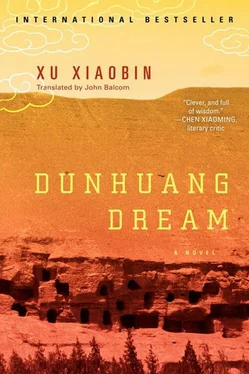


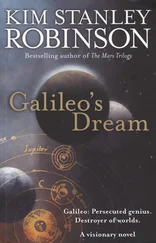
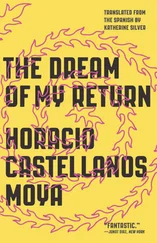


![Theresa Cheung - The Dream Dictionary from A to Z [Revised edition] - The Ultimate A–Z to Interpret the Secrets of Your Dreams](/books/692092/theresa-cheung-the-dream-dictionary-from-a-to-z-r-thumb.webp)
